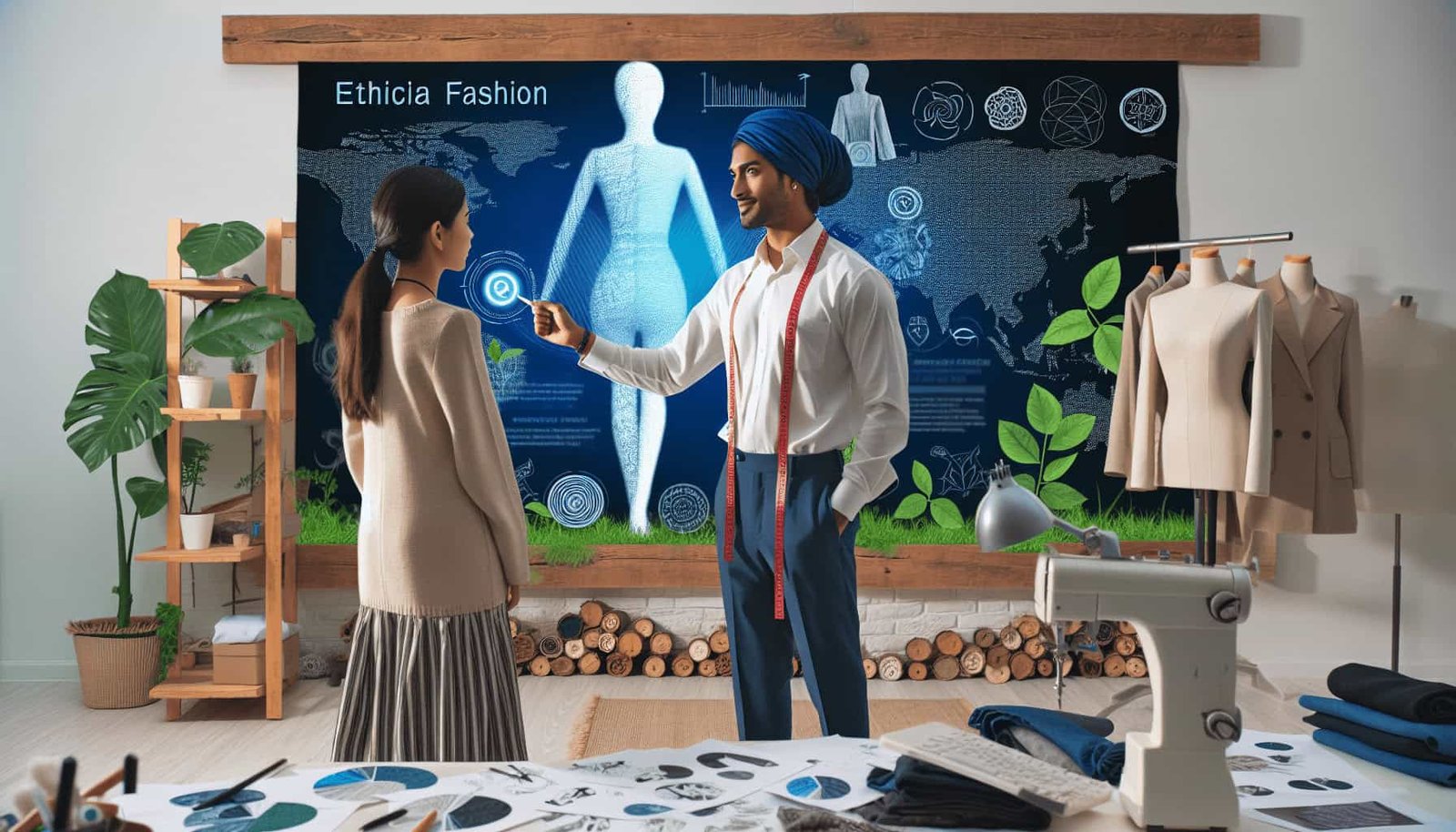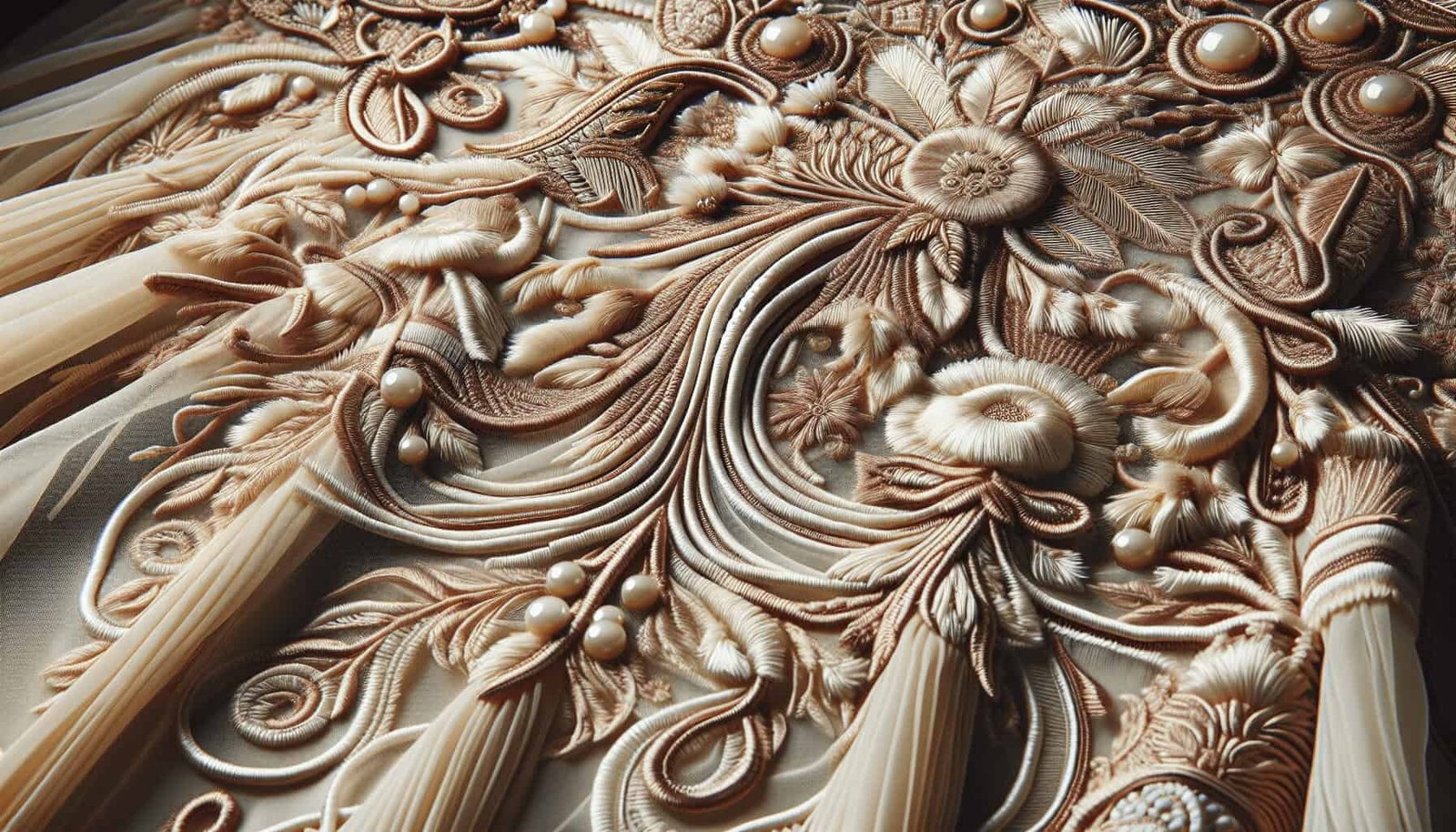Have you ever felt conflicted about your fashion choices and wondered if they align with your values? Look no further! Introducing the “Ethical Fashion Consultation,” a personalized service that guides you towards making more conscious and sustainable fashion decisions. With our expert team of fashion consultants, we provide tailored advice on ethical brands, sustainable materials, and responsible production practices. Say goodbye to the frustrating guessing game of searching for ethical fashion options – let us empower you to make stylish and ethical choices effortlessly.
Understanding Ethical Fashion
What is ethical fashion?
Ethical fashion refers to an approach to clothing production, distribution, and consumption that prioritizes social and environmental responsibility. It encompasses a range of practices that aim to promote the well-being of workers involved in the fashion industry, as well as minimize negative impacts on the environment. This includes fair trade, sustainable materials, and safe working conditions.
Why is ethical fashion important?
Ethical fashion is important for several reasons. Firstly, it addresses the concerns of workers in the fashion industry, who often face exploitative working conditions and low wages. By supporting ethical fashion, you contribute to the fair treatment of workers and promote better labor practices.
Secondly, ethical fashion is essential for safeguarding the environment. The fashion industry is notorious for its significant environmental footprint, including water pollution, greenhouse gas emissions, and textile waste. By choosing ethical fashion, you help reduce these negative impacts and work towards a more sustainable future.
The impact of unethical fashion on the environment and workers
Unethical fashion practices have a detrimental impact on both the environment and workers. Fast fashion, characterized by cheaply made and rapidly produced clothing, leads to excessive resource consumption, pollution, and waste. The production of synthetic materials, often used in fast fashion, relies heavily on fossil fuels and emits large amounts of greenhouse gases.
In addition, unethical fashion often involves exploitative working conditions, particularly in low-wage countries where labor laws may be lax. Workers may endure unsafe working environments, long hours, and low wages. This not only harms individuals but also perpetuates a system that values profit over human rights.
Benefits of Ethical Fashion Consultation
Creating a sustainable wardrobe
Ethical fashion consultation can help you create a sustainable wardrobe tailored to your style and values. It involves assessing your current wardrobe, identifying gaps, and determining sustainable options to fill them. By working with an ethical fashion consultant, you can develop a well-rounded collection of clothing that reflects your personal style without compromising on ethical principles.
Supporting fair trade and workers’ rights
By engaging in ethical fashion consultation, you actively support fair trade and workers’ rights. Ethical fashion brands prioritize fair wages, safe working conditions, and transparent supply chains. Through their commitment to social responsibility, these brands contribute to the empowerment and well-being of workers, ensuring they are treated with dignity and respect.
Reducing the environmental footprint of fashion
One of the significant benefits of ethical fashion consultation is the potential to reduce the environmental footprint of the fashion industry. Sustainable fashion brands focus on using eco-friendly materials, such as organic cotton, recycled fibers, and non-toxic dyes. They also strive to minimize waste through recycling initiatives and innovative production techniques. By incorporating sustainable fashion into your wardrobe, you contribute to the preservation of the environment.

Finding Ethical Fashion Brands
Researching ethical fashion brands
When searching for ethical fashion brands, conducting thorough research is essential. Look for brands that prioritize ethical production practices, fair trade, and sustainability. Online platforms and databases dedicated to ethical fashion, such as Good On You and Ethical Fashion Forum, can provide valuable information about brands’ ethical credentials.
Assessing the supply chain
To ensure that a brand truly aligns with ethical standards, it is crucial to assess its supply chain. Ethical fashion brands are transparent about their suppliers and manufacturing processes. Look for brands that provide information regarding their sourcing, production, and labor practices. This transparency demonstrates a commitment to ethical values and allows you to make informed decisions about the brands you support.
Identifying certifications and labels
Certifications and labels serve as indicators of a brand’s ethical and sustainable practices. Look for certifications such as Fair Trade, Global Organic Textile Standard (GOTS), and Bluesign when researching ethical fashion brands. These certifications provide assurance that the brand meets specific criteria for environmental and social responsibility. Additionally, keep an eye out for labels that highlight sustainable materials, like recycled or upcycled fabrics.
Personal Style Assessment
Understanding your personal style
Before embarking on an ethical fashion journey, it is important to understand your personal style. Take the time to explore different fashion aesthetics, colors, and silhouettes that resonate with you. Consider your lifestyle, personality, and values when identifying your style preferences. Understanding your personal style will help guide your choices when selecting ethical fashion pieces that align with your individual taste.
Identifying versatile and timeless pieces
When building a sustainable wardrobe, it is beneficial to focus on versatile and timeless pieces. These are items that can be easily mixed and matched to create various outfits for different occasions. Classic pieces such as well-fitting jeans, tailored blazers, and quality knitwear never go out of style. By investing in these timeless essentials, you can reduce the need for frequent wardrobe updates and contribute to sustainable fashion practices.
Sustainable fashion for different body types
Sustainable fashion embraces inclusivity and offers options for individuals of all body types. The key to finding sustainable fashion pieces that fit your body well is to prioritize brands that provide a diverse range of sizes and inclusive sizing charts. Additionally, consider choosing adjustable or customizable pieces that can be tailored to your specific measurements. The goal is to find sustainable fashion that not only aligns with your values but also makes you feel comfortable and confident.

Wardrobe Audit and Planning
Assessing your current wardrobe
Conducting a wardrobe audit is an essential step in embracing ethical fashion. Take the time to assess the items in your current wardrobe. Consider the quality, fit, and condition of each piece. Identify items that align with your personal style and values and set aside those that no longer serve a purpose or are in need of repair. This process will help you gain clarity on what you already own and what items you may need to add to create a more sustainable wardrobe.
Identifying gaps and essentials
During the wardrobe audit, identify any gaps in your wardrobe that need to be filled. Look for versatile pieces that can be easily mixed and matched with your existing clothing. Determine essential items that will help create a functional and sustainable wardrobe. These essentials can include items like a well-fitting white shirt, a versatile dress, or a pair of quality shoes that can be worn with various outfits. By identifying these gaps, you can make informed decisions when shopping for sustainable fashion pieces.
Creating a sustainable shopping plan
After assessing your wardrobe and identifying the gaps, it’s time to create a sustainable shopping plan. Set a budget and prioritize investing in quality, ethically made pieces. Avoid impulsive purchases and consider the longevity and versatility of each item. Make a list of sustainable fashion brands that align with your values and keep an eye out for sales, collaborations, or second-hand options. With a well-thought-out shopping plan, you can build a wardrobe that is both eco-conscious and stylish.
Tips for Sustainable Shopping
Prioritizing quality over quantity
When it comes to sustainable shopping, prioritizing quality over quantity is crucial. Opt for garments made from durable materials that are designed to last. Pay attention to details such as stitching, fabric composition, and overall craftsmanship. Investing in high-quality pieces may require a larger upfront cost but will save resources in the long run by reducing the need for constant replacements.
Supporting local and independent brands
Supporting local and independent brands is another way to contribute to sustainable fashion. These brands often have smaller-scale production and prioritize ethical practices. By choosing to support local artisans and designers, you not only promote fair trade but also encourage the growth of the local economy and creative industries.
Choosing second-hand and vintage options
Second-hand and vintage shopping are excellent options for sustainable fashion enthusiasts. Thrift stores, consignment shops, and online platforms offer a wide variety of pre-loved and vintage clothing. Choosing second-hand options not only extends the lifespan of garments but also reduces the demand for new production. Embrace the thrill of the treasure hunt and uncover unique and one-of-a-kind pieces while reducing your environmental impact.

Ethical Fashion Styling
Mixing and matching clothing items
Ethical fashion enables endless possibilities for mixing and matching clothing items. Embrace the art of layering and experiment with different combinations to create unique and stylish outfits. By maximizing the versatility of your wardrobe, you can minimize the need for additional purchases and reduce waste.
Creating stylish and sustainable outfits
Stylish and sustainable outfits go hand in hand. Look for outfit inspirations on ethical fashion blogs and social media accounts. Experiment with pairing different colors, textures, and patterns to create visually appealing looks. By showcasing your personal style through sustainable fashion choices, you become an advocate for ethical fashion and inspire others to follow suit.
Accessorizing ethically
Ethical fashion extends beyond clothing and includes accessories. When accessorizing, choose pieces made from sustainable or upcycled materials, such as recycled metals or vegan leather alternatives. Support local artisans and ethical brands that prioritize fair trade practices. Additionally, consider opting for timeless accessories that can be worn for years to come, reducing the overall environmental impact of your fashion choices.
Eco-friendly Care and Maintenance
Washing and drying clothes sustainably
Caring for your clothes sustainably is an important aspect of ethical fashion. Wash your garments only when necessary, using cold water and eco-friendly detergents. Air drying clothes is the most sustainable option, as it minimizes energy consumption. When using a dryer, choose the lowest heat setting and avoid over-drying to extend the lifespan of your clothes.
Choosing eco-friendly detergents and cleaners
Using eco-friendly detergents and cleaners is crucial for reducing the environmental impact of your clothing care routine. Look for biodegradable and plant-based options that avoid harmful chemicals. Consider using natural stain removers and fabric fresheners to maintain the cleanliness and freshness of your garments without compromising on sustainability.
Repairing and adapting clothing items
Repairing and adapting clothing items not only extends their lifespan but also promotes a more sustainable approach to fashion. Learn basic sewing skills or seek the help of a local tailor to mend garments with minor damages. Get creative and explore ways to upcycle or repurpose clothing items that may no longer be worn in their current form. By giving new life to old clothes, you contribute to the circular fashion movement and reduce textile waste.

Ethical Fashion Events and Community
Attending fashion swaps and clothing exchanges
Fashion swaps and clothing exchanges are fantastic opportunities to engage in ethical fashion practices while connecting with like-minded individuals. These events allow you to exchange clothing items with others, ensuring garments find new homes instead of ending up in landfills. By attending swaps and exchanges, you contribute to the circular economy and foster a sense of community within the ethical fashion movement.
Connecting with like-minded individuals
Building connections with like-minded individuals is invaluable when embracing ethical fashion. Join online communities, participate in social media discussions, and attend sustainable fashion events to connect with people who share your passion for ethical living. By exchanging ideas, experiences, and resources, you can learn and grow together, ultimately making a greater impact in the journey towards sustainability.
Participating in sustainable fashion initiatives
Participating in sustainable fashion initiatives is an excellent way to contribute to the larger ethical fashion movement. This can involve supporting campaigns advocating for fair trade, signing petitions for change, or attending workshops and seminars. By actively engaging in sustainable fashion initiatives, you play an important role in raising awareness and driving positive change in the fashion industry.
Long-term Sustainability Practices
Conscious consumption and minimalism
Long-term sustainability in fashion goes beyond individual choices and requires embracing conscious consumption and minimalism. This involves being mindful of what you purchase and considering the longevity and versatility of each item. Adopting a minimalist mindset helps prioritize quality over quantity and reduces the overall demand for fast fashion. By practicing conscious consumption and minimalism, you become part of a movement that challenges the traditional notion of constant consumption.
Supporting sustainable fashion advocacy
Supporting sustainable fashion advocacy organizations is crucial for shaping the future of the industry. These organizations work towards policy changes, ethical manufacturing standards, and transparency in the fashion world. By supporting their initiatives through donations, volunteering, or participation in campaigns, you contribute to the collective effort of creating a sustainable and fair fashion industry.
Engaging in circular fashion initiatives
Engaging in circular fashion initiatives is essential for closing the loop and reducing waste in the fashion system. Participate in recycling programs, support brands that offer take-back programs or garment recycling, and consider donating or selling pre-loved clothing. By embracing circular fashion practices, you actively contribute to minimizing the environmental impact of the fashion industry and promoting a regenerative economy.
In conclusion, ethical fashion consultation provides guidance and support in navigating the world of sustainable fashion. By understanding the principles of ethical fashion, finding ethical fashion brands, identifying personal style, conducting a wardrobe audit, practicing sustainable shopping, and engaging in ethical fashion styling and care, you can make conscious choices that benefit both the environment and workers. Through your commitment to ethical fashion, you become an active participant in creating a more sustainable and fair fashion industry for the future.


